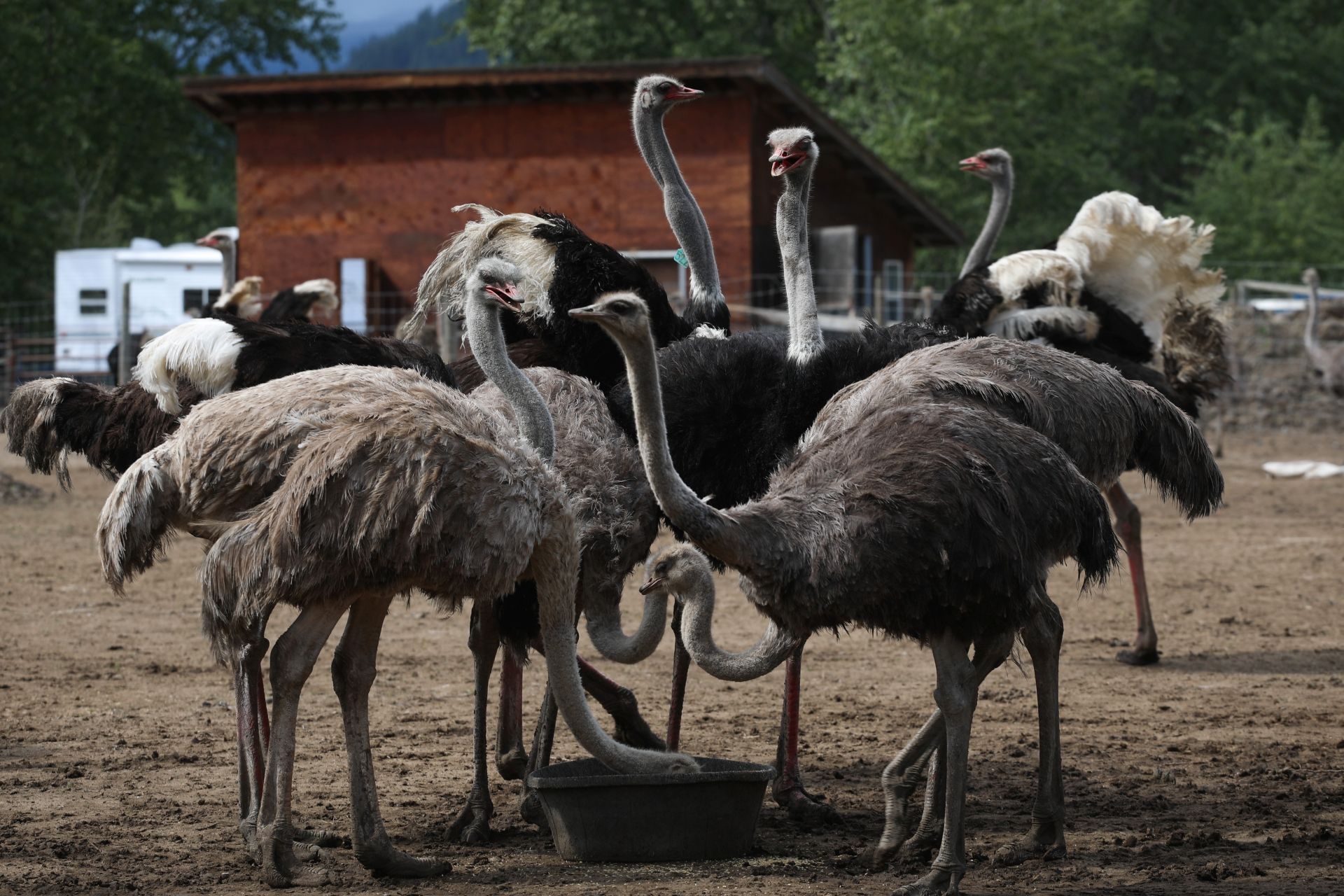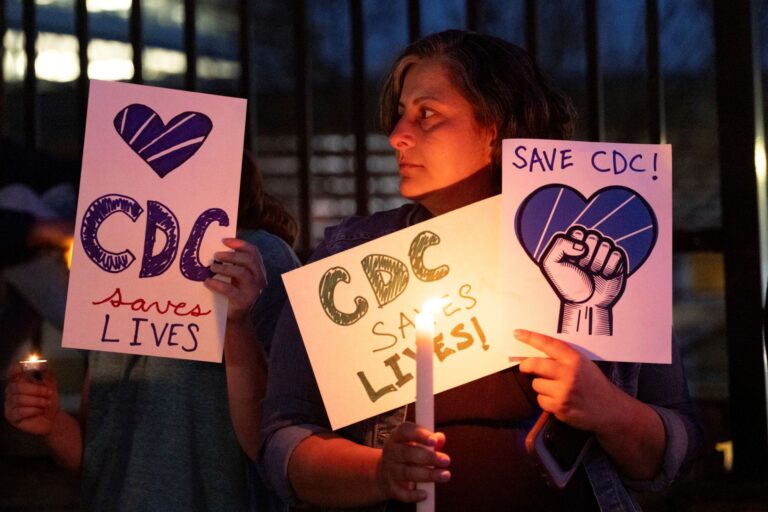Last week, the Supreme Court of Canada refused to hear Universal Ostrich Farm’s appeal of a Canada Food Inspection Agency (CFIA) order to cull what remained of the B.C. farm’s nearly 400 ostriches after an outbreak of avian flu.
This judgment and the subsequent cull marked the final steps in a nearly year-long legal and regulatory odyssey, marked by controversy fuelled by disinformation, polarizing partisanship and meddling American politicians and billionaires.
All of these trends parallel the spread of vaccine hesitancy and contribute to a growing distrust in science and an alarming disengagement from the common good. The same influencers, the same arguments, the same divisiveness from the COVID era threaten public safety today.
Policymakers, academics and the wider public must remain vigilant to the risks this poses to our society and democracy. They should actively promote scientific information, encourage public dialogue based on facts and work to rebuild trust in the institutions that protect the health of Canadians.
The cull order was made last Dec. 31, after an anonymous tip prompted CFIA to inspect the farm, discovering dozens of birds confirmed dead from the highly contagious H5N1 infection. Symptoms of avian flu in the ostriches had been noticed after 300-500 wild ducks, known carriers of H5N1, landed on an open pond.
A subsequent federal court decision cited significant evidence of deplorable biohazard conditions with the potential for interspecies spillover at the farm.
Wild birds and animals were repeatedly seen entering quarantine zones and barns to feed, carcasses left in advanced states of decomposition were scavenged by wild animals and there was no attempt to contain the movement of staff, visitors and equipment in infected spaces, as required.
The farm’s owners had failed to notify CFIA of the deaths and challenged the cull decision.
Goaded by disinformation pertaining to the ostriches’ purported capacity to contribute to antibody production and disease research, supporters picketed outside the farm and threatened violence against officials exercising their statutory authority to protect public health from the highly pathogenic avian influenza (HPAI) threat.
Cull opponents were a motley coalition of fringe online media, 2022 trucker convoy leaders in search of a new cause, people who distrust science and government, and former pandemic activists, who saw the case as an overextension of government powers akin, they said, to the public health measures rolled out during COVID-19.
A dangerous trend
Canadians rely on government institutions to identify and respond to public health threats. With the understanding that there are opportunities to appeal government actions, they expect health and safety regulations to be enforced swiftly and efficiently for the public good.
But when agitated citizens try to prevent public health officials from doing their jobs, two of democracy’s guiding forces – ideology and civic participation – can become dangerous tools. Machinations are growing at home and abroad to agitate groups to defy legal orders and to challenge proven, effective health standards.
What did we learn from the COVID-19 pandemic?
The distrust of public health interventions is not a new phenomenon.
During the 19th century, frightened citizens marched in protest against the injection of cowpox into people to prevent smallpox.
During the height of COVID-19, the trucker convoy fomented resistance to public health measures, from vaccines to masks to physical distancing, culminating in the siege of downtown Ottawa that led to the imposition of the Emergencies Act and criminal charges against some of the key organizers. The backlash against pandemic measures eroded trust in government and scientific institutions.
Adherence to the CFIA’s avian flu stamping-out policy is especially important in the B.C. case. Unlike other poultry, ostriches are more likely to act as a reservoir for the HPAI virus and a vector of transmission even when showing no signs of infection. They have the potential to harbour viral mutations, increasing its virulence, infectivity and pathogenicity.
Laboratory analysis of the strain found at Universal Ostrich Farms confirmed that it was a novel version of the virus, which displayed enhanced pathogenicity as well as low-dose lethality in mice. Further, it was found to be related to a strain that had previously infected a person at a poultry farm in Ohio.
CFIA is obligated to apply the stamping-out policy of the World Organisation for Animal Health to prevent transmission of HPAI. Recommended by the UN’s Food and Agriculture Organization, these biosecurity standards are intended to limit viral spillover into human populations.
Canada must also adhere to these standards to meet its World Trade Organisation obligations and the terms of both the Canada-United States-Mexico Agreement and the Canada-EU Comprehensive Economic and Trade Agreement. Failure to do so complicates and undermines trade and Canadian agribusiness.
CFIA found numerous violations at the farm under the Health of Animals Act, but the farm owners submitted a claim that the bird’s “genetic rarity” and relevance to research should supersede the stamping-out policy. Its submission was rejected by the CFIA based on insufficient supporting evidence.
In a May application for judicial review, the Federal Court determined that CFIA’s cull order was reasonable and procedurally fair. The Federal Court of Appeal upheld that decision.
Politically agitating distrust in public health interventions
But that didn’t stop the opposition.
Many of the same actors and antics that generated the pandemic convoy supported Universal Ostrich Farms. Tamara Lich has been directly involved. The leader of the People’s Party of Canada, Maxime Bernier, who promoted vaccine hesitancy throughout the pandemic, also lent his support.
Social media and groups known to peddle disinformation also fanned the flames of discontent, alleging government overreach and infringement of farmers’ freedoms. Senior Trump administration figures weighed in, with Secretary of Health Robert Kennedy Jr. asking for the birds to be saved based on their unproven importance to vaccine and biologics research.
From COVID-19 to H5N1
One would have hoped that COVID-19 taught Canadians about responding too late and inadequately to politically polarizing actors disseminating disinformation but here we are again. The risks posed by the unnecessary and ill-advised politicization of CFIA’s decision mirror those caused by anti-vaccine influencers.
Misinformation and disinformation that undermine scientific evidence and vaccine funding allocations, encourage hesitancy and offer political gain to those seeking to derail good governance.
The real political work needed is ensuring equitable access to the benefits of trustworthy information and biotechnologies that are all too often inefficiently distributed or sequestered behind overly restrictive intellectual property laws.
As the seeds of skepticism are sown and grow, misdirected politicians scale back vaccine programs and vaccine uptake diminishes.
Countering the threat of AI manipulation by authoritarian states
Tylenol, Trump and the crisis of public health communication
Why academics must speak out against Trump and disinformation
In Canada, where each province and territory has its own immunization program, disparity and fragmentation grow constantly with ideological interference resulting in a failure to act for the common good by our public health institutions.
During the pandemic, spurred on by the political far-right, Alberta Premier Danielle Smith failed to endorse vaccination. Much higher rates of infection and mortality were reported there, compared to Nova Scotia, for example, which strongly supported vaccination.
Having now lost its measles elimination status, this is not the time for Canada’s public health system to bury its head in the sand.
Regaining peace, order and trust in good governance
While some people are genuinely distrustful of government today, political agitation aimed at aggravating their concerns and fears is part of a destabilizing program by some malevolent political actors intent on building mistrust in public institutions.
Public health actors are responsible for protecting Canadians. They must work to encourage dialogue and build trust across institutions. That requires renewed attention to the context, history and systems that engender distrust in the science (upstream) and among the agitated civil actors (downstream).
A new public health governance framework built on good governance principles reliant on clear standards, sound evidence, good communication and effective participation is long past due.
Canadians benefit from strong, effective and enforceable regulatory oversight. Absent this, polarizing partisan politics will continue to compromise not only vaccination but all manner of essential work that government agencies perform on our behalf.














